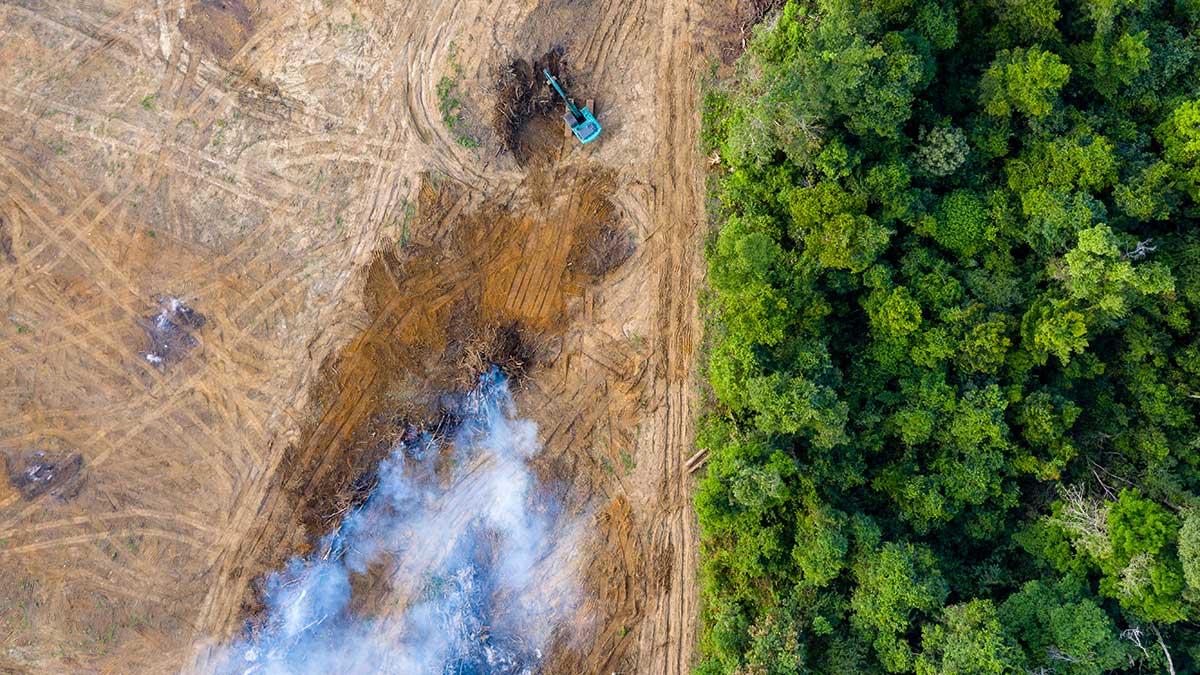Ecosystems services, the good nature does for humans, have been treated as free benefits, but we are in danger of losing them. In 2023, the world’s natural carbon sinks, including forests and oceans, collapsed compared to previous years. Extreme heat, drought, and wildfires in the Amazon and Canada severely weakened these ecosystems’ ability to absorb CO2. The planet’s climate is in crisis and may be unable to bounce back.
According to the findings of a pre-published study, the planet’s carbon absorption capacity reached its lowest point since measurements began. Carbon absorption fell by almost half in several regions. The drop is alarming because it demonstrates how vulnerable the planet’s natural systems are to human-driven climate change.
“This result is alarming as temperatures continue to keep very high values in 2024,” the study authors wrote. “It is too early to conclude on a durable collapse of the land sink in the aftermath of 2023. Yet, forests burned in Canada will not completely restore their carbon stocks for the next decades, given that it takes about 100 years for boral trees to recover their initial biomass.”
The study also explained that the Amazon can recover from drought more quickly than forests in the Northern Hemisphere. However, the researchers reported that “forest resilience has been decreasing over time in the Amazon.” They are not confident that the massive rainforests of South America will remain a long-term storehouse for atmospheric carbon.
How You Can Help Reduce Deforestation
As individuals, we can feel powerless in the face of global issues. However, each of us can take action to reduce our contribution to deforestation. The European Union’s 2023 introduction of the Regulation on Deforestation-Free Products requires companies to prove their products and packaging are not sourced from deforested land or contribute to new forest clearing — anywhere in the world. As companies adjust to continue selling in Europe, the information they provide will help consumers identify deforestation-free products and packaging everywhere. Hear how Wholechain and GS1, the global nonprofit that manages the Universal Product Code barcode, are collaborating to track deforestation in the beef supply chain.
Fortunately, more information will be available to help you make informed decisions about products. Choosing deforestation-free options when shopping can help protect boreal forests, mangrove forests along coasts, and the Amazon, which are critical for absorbing CO2 and sustaining biodiversity.
Choose Certified Sustainable Products
One of the simplest actions is to look for products with the Forest Stewardship Council (FSC) certification, which ensures that wood, paper, or other forest-derived products come from responsibly managed forests. The FSC sets standards to protect forests from overexploitation, illegal logging, and clear-cutting practices contributing to deforestation.
The FSC has launched a search service that helps consumers find companies and products currently holding its certifications. While not an entirely intuitive tool, FSC Search represents a much-needed step toward transparency.
Embrace Recycled or Alternative Materials
Recycling reduces the demand for virgin wood and other materials linked to deforestation. Take the time to research products made with recycled paper or choose alternatives made from sustainable materials such as bamboo, hemp, or cork. For instance, bamboo grows quickly and can be harvested without killing the plant. In addition to its use in paper, bamboo is an excellent substitute for hardwoods used in flooring, furniture, and other products.
Reduce Meat and Palm Oil Consumption
Deforestation is often the result of expanding agricultural land. In tropical regions, vast tracts of rainforest are still being cleared to make way for beef production and palm oil plantations.
You can cut back on beef consumption to prevent deforestation. Opt for plant-based alternatives. Likewise, choose sustainably sourced palm oil by looking for certified products carrying the Roundtable on Sustainable Palm Oil (RSPO) certification.
Support Brands with Ethical Supply Chains
More companies are adopting zero-deforestation policies, committing to ensuring their products don’t contribute to forest loss. Do your research and support brands that commit to transparency and sustainable sourcing practices. Many commodities, including soy, coffee, chocolate, and palm oil, are adopting sustainable certification programs and labels.
Voting with your wallet can encourage more companies to adopt deforestation-free policies in their supply chains and help create a market for sustainable products. While the scale of deforestation and its impact on our planet’s carbon sinks can seem overwhelming, the choices we make as consumers can have a tangible effect.
Learning about sustainable practices can reduce our consumption of products tied to deforestation. We can contribute to preserving the forests that play a vital role in nature’s long-term recovery from the damage caused by climate change.
Each of us has the power to drive demand for sustainable products and protect the ecosystems that help regulate the planet’s climate. It’s time to make those small changes that add to big solutions.
Source link
Earth911 earth911.com

